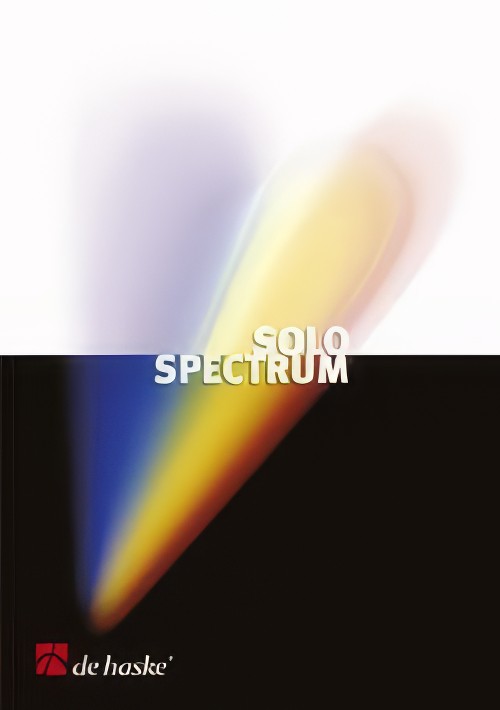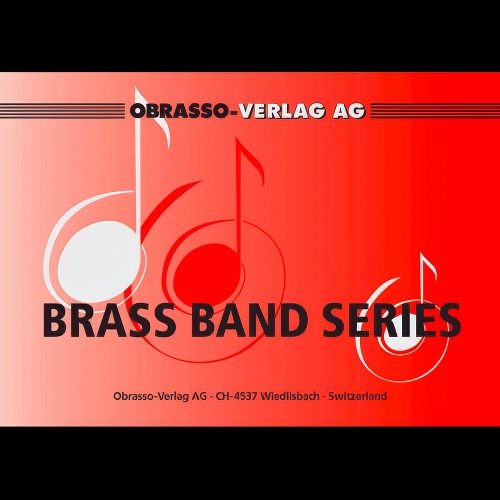Results
-
£65.00
Blackbird Special - Davis, Lewis, Towns, Harris, Marshall, Joseph, Johnson & Jones - Reid Gilje
"Blackbird Special" is a song by American band Dirty Dozen Brass Band.The song is an entertainment piece, a good concert opener or encore.When used as a concert opener one may let the different sections of the band enter the stage one by one playing in order of appearance.Percussion section may play their parts ad lib. The most important is the groove of the piece.Please pay attention to strict articulation from bar 17. Be aware of the marcatos at 33. The last note of the slurs at 41 must be not be too short.It's important to hold the note values, especially in bars 49, 51, 53 and 55.From 57 and throughout the piece, the percussion may invite the audience to join for handclaps.As an extra effect, the Bass Tubas may stand at 57, the Horns at 59, backrow Cornets and Trombones at 61 and Euphonium/Baritone/Solo Cornets at 63.
Estimated dispatch 7-14 working days
-
 £107.80
£107.80Blackbird Special - Davis - Reid Gilje
Blackbird Special" is a song by American band Dirty Dozen Brass Band. The song is an entertainment piece, a good concert opener or encore. When used as a concert opener one may let the different sections of the band enter the stage one by one playing in order of appearance. Percussion section may play their parts ad lib. The most important is the groove of the piece. Please pay attention to strict articulation from bar 17. Be aware of the marcatos at 33. The last note of the slurs at 41 must be not be too short. It's important to hold the note values, especially in bars 49, 51, 53 and 55. From 57 and throughout the piece, the percussion may invite the audience to join forhandclaps. As an extra effect, the Bass Tubas may stand at 57, the Horns at 59, backrow Cornets and Trombones at 61 and Euphonium/Baritone/Solo Cornets at 63. ||||||
Estimated dispatch 5-14 working days
-
 £60.99
£60.99Memory (Baritone or Euphonium Solo with Brass Band - Score and Parts) - Ares, Rob
Duration: 4.15
Estimated dispatch 7-14 working days
-
 £76.99
£76.99Twilight Serenade (Baritone or Euphonium Solo with Brass Band - Score and Parts) - Schoonenbeek, Kees
Duration: 8.00
Estimated dispatch 7-14 working days
-
 £56.00
£56.00A New Day (Baritone or Euphonium Solo with Brass Band - Score and Parts) - Crossley, Andrea
Grade: Easy/Medium.
Estimated dispatch 7-14 working days
-
 £50.90
£50.90AULD LANG SYNE (Vocal Solo (Baritone) with Brass Band) - Lorriman, Howard
Grade: Easy.
Estimated dispatch 7-14 working days
-
 £50.90
£50.90CORE 'NGRATO (Vocal Solo (Baritone) with Brass Band) - Cardillo, Salvatore - Lorriman, Howard
Grade: Easy/Medium.
Estimated dispatch 7-14 working days
-
 £54.20
£54.20LARGO AL FACTOTUM (Vocal Solo (Baritone) with Brass Band) - Lorriman, Howard
From The Barber of Seville. Grade: Medium.
Estimated dispatch 7-14 working days
-
 £50.90
£50.90RAINY DAYS AND MONDAYS (Baritone/Euphonium Solo with Brass Band) - Fernie, Alan
Grade: Medium.
Estimated dispatch 7-14 working days
-
 £50.90
£50.90SPRIG OF THYME, The (Baritone/Euphonium Solo with Brass Band) - Smith, Sandy
Grade: Easy.
Estimated dispatch 7-14 working days
